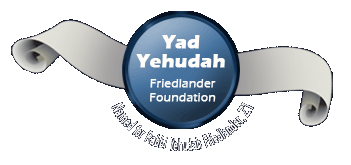The fairly large crust – at least five centimeters long – lay folded in Yehuda's palm. He'd been planning to make a meal of it when he found a quiet moment.
Maybe he'd even be able to mentally review some Mishnayos while he ate. That would be a double defiance of the Nazi beasts who roamed the lager, the camp. Not only would he be guarding his health by chasing away the hunger pangs for a few moments, but he'd be doing something even more subversive: he'd be reviewing his Torah learning, an activity banned by the fierce guards.
Then Yehuda noticed a member of his work group, sitting hunched in the corner of the barracks. The fellow was paler than usual. Yehuda walked over to him slowly, crouched down on his heels and looked the man straight in the eyes.
"My friend," he said softly, "I have a present for you."
The man's eyes flickered in bewilderment. "A wha-?" he managed to whisper.
Yehuda didn't wait for his fellow prisoner to finish the word. He stuffed the entire crust into the man's mouth, quickly, because he'd thought to give him only half. He stood up and walked away, but not before he'd glimpsed the look of relief in the man's eyes.
"Nu, I can review Mishnayos without eating tonight. Tomorrow I can organize another crust of bread. Maybe even two," Yehuda thought as he walked to the opposite side of the barracks.
Yehuda continued to find ways to feed his fellow prisoners, Jews, who like him, had been kidnapped by Nazi thugs and their local collaborators, and forced to work, outside, in harsh conditions. The lack of warm food and clothing claimed many victims. Especially the lack of food.
"A Yid git zich an aitza" Yehuda would remind himself. Years later, friends would translate that phrase as, "Where there's a will there's a way." The difficulties of "organizing" food sometimes gave him to wonder whether he would indeed find a way to pick up some scraps of bread, or potato peels. Usually, he succeeded, and both he and his companions felt strengthed as a result.
Weeks passed, then months and years. Yehuda had survived the sweep of destruction in Europe. He'd married and established a family in the United States. But he did not forget those days when he would rejoice over finding a quarter of a potato in the trash.
His offspring haven't forgotten his stories, either. That's why, when they heard of a grass-roots organization in central Israel whose aim is to provide needy Jews with food, they offered to help raise funds for the task. The organization, founded in 2002, is now named Yad Yehuda, after their father, Yehuda Friedlander, z"l.
Yehuda's desire to help his fellow Jews, forged in the crucible of pain that was Nazi Europe is still finding expression, this time, on a different continent, in the Land of Israel.
|
